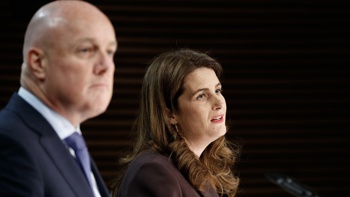
An Auckland educational company whose "cynical" sales tactics misled parents into buying an expensive mathematics software, some of who cut back on essentials to afford it, has been fined more than $350,000.
Auckland Academy of Learning (AAL) led parents to believe their children had "gaps" in their knowledge by using "hard sell" tactics during home visits and over the phone, a court heard today.
The company faced 11 charges under the Fair Trading Act.
The company had earlier plead guilty.
Judge Noel Sainsbury told the Auckland District Court the charges related to deliberately misleading representations, both over the phone and in home visits, of the nature of a mathematics software program (Cami) which purported to help children with their maths learning.
Sainsbury classified AAL as having committed serious offending but accepted mitigating factors such as no previous convictions and a guilty plea, bringing the penalties down 35 per cent from a starting point of $520,000 to $351,000.
Thousands of parents targeted by AAL paid between about $3000 and $11,000 each for the Cami software, with more than 2400 Kiwi customers paying the full amount of their typically 24-month-long contracts.
Sainsbury said the company's major misrepresentations regarded false claims Cami covered the New Zealand curriculum and failure to notify parents of their rights around opting out of subscription agreements they had signed up for.
Parents were led to believe their child needed the software after an in-home test where an AAL salesperson would follow a script categorising a child as being either average, struggling, or advanced.
The student's assessment was also explained to have been from the previous academic year, with parents told any more than one or two mistakes showed "gaps in knowledge".
Any incorrect answers were circled in red before the sales person would ask the prefaced question: "Is this the sort of result you expected?"
But tests done during home visits were too hard for the year level of the child supposedly being tested and in any case one test was not enough to judge a child's skill level, Sainsbury said.
The purpose of the home visits were not to offer tutoring to a child, as representatives for AAL claimed, but rather to sell Cami software, he told the court.
Therefore the method of sale was misleading and parents' concern over their children's education was being deliberately targeted.
"It was cynical marketing attaching people who are vulnerable because of their natural concern for their children."
In many victim impact statements parents said they felt guilty and that they were failing children after home visits, Sainsbury said.
In some cases families on low incomes went without food in order to pay for the software, he told the court.
Consumers were locked into lengthy contracts, with many paying $59.30 a week for 24 months, and sales representatives did not properly inform people of their rights to opt out, meaning consumers did not exercise those rights, Sainsbury said.
While not in itself flawed or inherently unhelpful, Cami was a program taken from overseas and did not relate directly to New Zealand's curriculum.
AAL's sole director, Gordon McPherson, was present for sentencing today.
He sat quietly at the back of the courtroom as Judge Sainsbury told the court of his prior work with the Victoria Academy of Learning in Australia, selling Cami software by cold calling parents.
Victims of the AAL scheme have said the rort was "gut-wrenching" and left them "dumbfounded".
"You don't get the product but you pay everything for it," said one in a victim impact statement.
The Commerce Commission charged the AAL in June last year over the way it sold its education software packages, claiming that staff misrepresented the product and breached consumer credit and direct selling laws.
The Commerce Commission had received more than 180 complaints, largely after a series of stories aired on the now-defunct TV3 programme, Campbell Live, between 2014 and 2015 over the way AAL sold computer-aided mathematic instruction software.
Sainsbury accepted that following reports about the company's behaviour there had been a significant dip in sales but said that was a direct result of the offending and no reason for a discount at sentencing.
Take your Radio, Podcasts and Music with you









